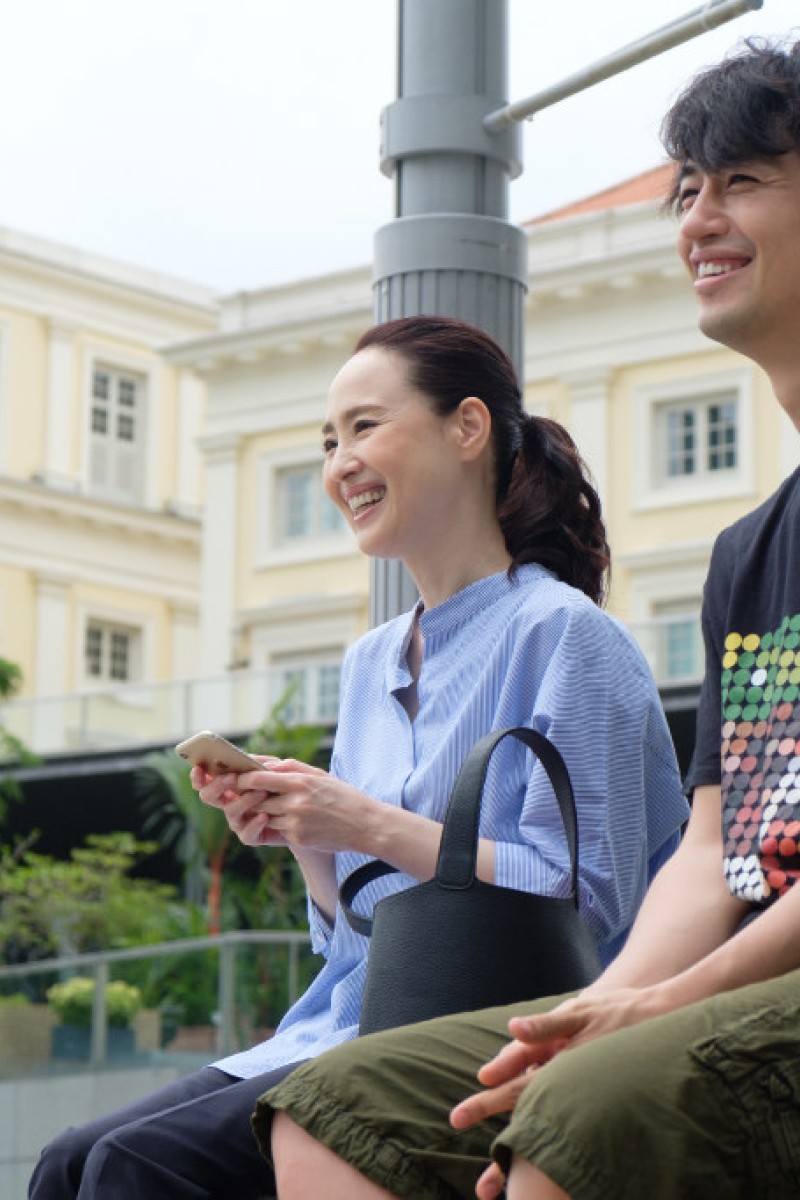
‘Ramen Teh’ movie review: Japanese drama features tasty Instagrammable Singaporean dishes, but a bland plot holds it back
Takumi Saito and Seiko Matsuda star in a family drama about the (food) ties that bind across distance and time
 Miki (Seiko Matsuda, left) takes Masato (Takumi Saito) on a food tour of Singapore in 'Ramen Teh'.
Miki (Seiko Matsuda, left) takes Masato (Takumi Saito) on a food tour of Singapore in 'Ramen Teh'.Ramen Teh is a family drama that tells the story of Masato (Takumi Saito), a young Japanese-Singaporean ramen chef. Masato finds his deceased mum’s journal after his Japanese father suddenly passes away.
He is reminded of his childhood growing up in the lion city while going through the journal, and this prompts him to return and reconnect with his Chinese Singaporean roots.
Masato’s homecoming trip starts with Miki (Seiko Matsuda), a Japanese food blogger living in Singapore who gives him a gastronomic tour around the city as he searches for his Uncle Wee (Mark Lee) who owns a shop selling bak kut teh, or pork ribs soup – a popular Chinese (Teochew) dish in Singapore.
Masato soon realises just how his Singaporean-Japanese heritage is a reflection of the ramen noodles his father is famous for: both are a unique combination of Chinese and Japanese cultures. This inspires him to create his own ramen by bringing the two dishes together. Along the way, Masato explores his mother’s estranged relationship with his maternal grandmother, and bonds with his new-found family through food.
Singaporean director, Eric Khoo is known for featuring family and food, in particular, noodles – also commonly referred to as mee in Southeast Asia – as the central theme of his films, with previous local productions such as Mee Pok Man (1995) and Wanton Mee (2016).
And Ramen Teh is no different. Foodies are treated to a visual feast with plenty of tantalising and mouthwatering shots of the city’s signature dishes such as chicken rice, chilli crab, fish head curry, and the star dishes of the film – bak kut teh and ramen.
But sadly, this is probably all that is memorable about the film. Beyond the scrumptious food shots, one can’t help but be turned off by the weak plot and Saito’s lackluster performance.
Masato’s journey of family reconciliation lacks conviction, and there is no semblance of genuine affection with any of the family members he reconnects with. Saito’s childhood memories are glazed over, and the random flashbacks of his parents are not fully explained, adding to the incoherent storyline.
While Ramen Teh is a lovely ode to Singapore’s food culture, the film’s weak narrative is reminiscent of the feeling after one gets after gobbling down a bowl of bland ramen noodles – full but ultimately unsatisfied.
Edited by Jamie Lam
